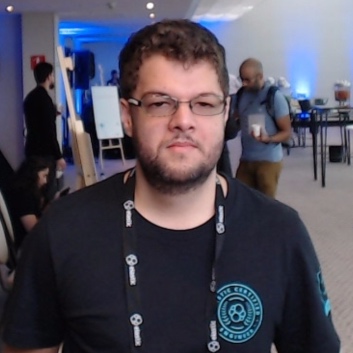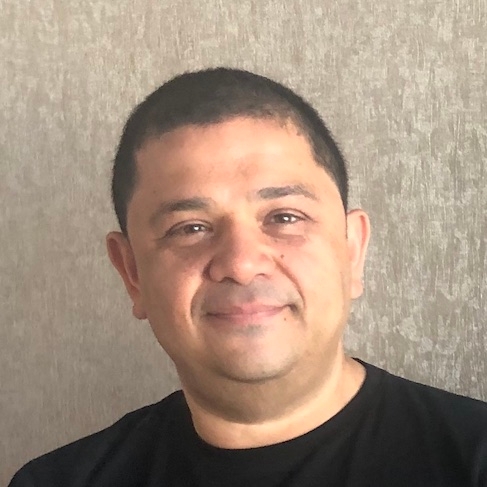Becoming an Elastic Certified Engineer pays dividends
The headline says it all. But don’t just take our word for it.
We recently interviewed five Elastic professionals who have become Elastic Certified Engineers to find out what life after certification is like. Their updates included new jobs, fascinating personal projects, wage increases, and expanded use cases.
To obtain this Elastic certification, candidates must complete a series of challenging, real-world, hands-on tasks within three hours — all performed on a collection of Elasticsearch clusters.
Here is what these Elastic Certified Engineers had to say:
Jessé Peixoto, tech lead at ASPER
 In March, Jessé became our first Elastic Certified Engineer in Latin America. And it’s paid some pretty big dividends — for himself and for Asper consultancy in Brazil, where he is now the tech lead.
In March, Jessé became our first Elastic Certified Engineer in Latin America. And it’s paid some pretty big dividends — for himself and for Asper consultancy in Brazil, where he is now the tech lead.
“It has changed my life very much," he said. “It’s been a benefit for me and my company."
For starters, his employer Asper has given him a wage increase. His refreshed LinkedIn profile, which now shows his Elastic Certified Engineer badge, has attracted a ton of attention from recruiters. In addition, engineers across the globe are reaching out to him seeking his expertise.
“People from all over the world are coming to me asking about Elasticsearch," he said.
What’s more, he’s now an organizer of Elastic’s Brasília Official Community meetups. And Asper is using his certification as a means to demonstrate the company is qualified for Brazilian government contracts.
“The plan is to have more of my colleagues certified," he said. “The government needs to ensure they are contracting with qualified professionals."
Jessé said he took the Elasticsearch Engineer I and Elasticsearch Engineer II courses ahead of his certification testing.
His advice to others considering whether to get certified: “When you get certified, you are going to be really valuable. I’m really more confident with my job than I used to be."
Lucian Precup, CTO and founder of Adelean
 Lucian has been working with Elasticsearch since 2011. The French consultancy he founded, Adelean, does 90 percent of its business with clients using the Elastic Stack. That’s a key reason why he became an Elastic Certified Engineer in 2018. A few other colleagues have also become certified — and more are on the path to certification.
Lucian has been working with Elasticsearch since 2011. The French consultancy he founded, Adelean, does 90 percent of its business with clients using the Elastic Stack. That’s a key reason why he became an Elastic Certified Engineer in 2018. A few other colleagues have also become certified — and more are on the path to certification.
“This allows us to emphasize the fact that we are masters of the technology," he said. “It’s very important for us to keep up with everything Elasticsearch. The certification was not easy."
In addition to studying as much material as he could on his own to prepare for the test, he also was schooled by somebody who knows the Elastic Stack pretty well. In 2013, Lucian participated in a training session conducted by Shay Banon, an Elastic founder and now CEO.
Fast forward to today. The impacts of Lucian getting certified have quickly translated into customer success stories.
“Taking the certification shows you the power of Elastic. Suddenly, you are using new functions and getting more in line with the latest functionality of Elasticsearch," he said. “We started getting recognized for this by our customers and they now know they are dealing with professionals."
His advice to others considering whether to get certified: “If you’re really into proving to yourself, clients, and your peers that you really know and have mastered the Elastic technology, you should do it."
Joe Wu, manager at KKStream

Joe embraced Elasticsearch beginning in 2013, when he worked for HTC, a Taiwanese mobile phone company and built a news and social feeds reader using Elasticsearch.
Since 2015, he harnessed his knowledge of the Elastic Stack to begin teaching Elasticsearch courses in Taiwan. Then, in 2018, he became an official Elastic Certified Engineer.
Not only has that helped his teaching career, but it also helped his job at KKStream, a B2B2C music solution that was deploying the Elastic Stack.
“I wanted to prove that I was qualified. I also wanted to explore whether there were new courses I could teach in Taiwan,” he said.
To gain enough knowledge for the certification, he studied Elastic’s documentation and watched training videos online.
“I found details that I really didn’t know about,” he said. “I improved my skills. This improvement also benefited in my new job when I fix issues and when I help to provide a better search experience for my customers. I can give them more professional suggestions.”
His advice to others considering whether to get certified: “I would encourage them to take this certification. If you can take this certification, this means you know you can really use Elasticsearch for any situation.”
Vojtěch Hýža, freelancer engineer
 Some people like a challenge for no other reason than getting over a hurdle. That’s why Vojtěch said he took and passed the Elastic Certified Engineer exam in 2018.
Some people like a challenge for no other reason than getting over a hurdle. That’s why Vojtěch said he took and passed the Elastic Certified Engineer exam in 2018.
“I wanted to know if my knowledge of Elasticsearch was enough to pass the exam. That was the main reason," he said. Beyond that, he said he wanted to “make the search experience better for my clients."
Before he took the exam, he was performing consulting work for Czech clients on e-commerce platforms as well as on social media projects using Elasticsearch to analyze data from Twitter, Facebook and other networks. He said he grew bored of that type of work and decided to put his new certification into play and use Elasticsearch to drive a global weather forecasting app for surfers. The app is still being built, he said.
He prepared for the certification test by sifting through Elastic’s online documentation and by watching videos as well, including a webinar on preparing for the certification exam.
His advice to others considering whether to get certified: “You should do it. It will help your career and your projects."
Mehmet Tolga Avcioglu, system architect at Pusula
 Mehmet has been working with the Elastic Stack for years, and as a system architect at Pusula in Turkey, he wanted to help his company stay competitive with its messaging and email services and solutions.
Mehmet has been working with the Elastic Stack for years, and as a system architect at Pusula in Turkey, he wanted to help his company stay competitive with its messaging and email services and solutions.
“In terms of being able to make really good use of Elasticsearch, we were falling behind, and we weren't necessarily able to find the right talent. We wanted to get better at it and dig deeper and utilize advanced features," he said. “So I decided to get the certification for myself. A local meetup group was also asking me to present, which gave me a good reason to bring my knowledge to a level where I could teach it to others."
He’s says his certification has benefited his company too, as he’s been able to better harness the Elastic Stack for Pusula’s email and messaging platforms.
Mehmet’s training in advance of the test included watching Elastic videos, reading Elastic’s documentation and studying the exam objectives. He also built and configured several Elasticsearch clusters in his work’s environment as practice.
His advice to others considering whether to get certified:
“There’s a certain threshold that sometimes is really hard to pass through by just troubleshooting problems when they happen to rise," he said. “The certification allows you to take things upon yourself to tackle issues you don’t necessarily always happen to see in everyday life, and it allows you to pass that threshold."
Only one conclusion...
Becoming an Elastic Certified Engineer has empowered these individuals with the confidence and knowledge to perform the tasks necessary to build a complete Elasticsearch solution.
As demand for Elastic skills continues, we will continue bringing new performance-based certifications to market. Our newest certification — Elastic Certified Analyst — is designed for data analysts who have mastered analyzing and observing time-series data using Kibana. We invite you to learn more about our certification offerings.
If you have additional questions, please see our Certification FAQ or contact us at [email protected].